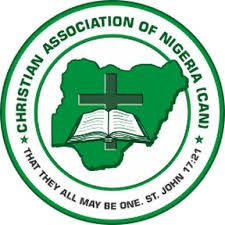


Palace of Priests Assembly hosts workshop to address corruption among Christians holding public office
By Matthew Denis, Abuja
In a bid to reduce corruption to a minimum level, a non-governmental organisation popularly known as Palace of Priests Assembly (PPA) has organised a workshop for Christians in government parastatals to ensure transparency and accountability.
Speaking during the event, the General Overseer and Founder of Palace of Priests Assembly, Dr. Otive Igbuzor said, “I welcome you to this meeting on transparency and accountability for Christians in Government as part of the SHUN Corruption Project supported by John D. and Catherine T. MacArthur Foundation.
“The SHUN Corruption project was conceived by PPA in furtherance of our mission as a church and the mandate that God has given to us. Our mandate is, among other things, to promote the dual mandate of the church and the priesthood of all believers.”
He explained that the project is implemented by the social arm of the church, the Priests Peace and Justice Initiative (PPJ) with the goal of mobilising Christians, especially Pentecostals, to join the fight against corruption in Nigeria.
The Founder of PPA stressed that the problem of corruption is a global one.
“Over the years, several scholars, development workers, activists, politicians, international organisations, public affairs commentators and the general public have given attention to the problem of corruption and its attendant effects on society.
“The problem is not new to humankind even though it has reached unprecedented proportions in recent years. It is as old as society itself and cuts across nations, cultures, races and classes of people. Corruption poses significant challenges to economic development, social justice and stability.
“It has been argued that one of the major obstacles to the development of poor countries is corruption. Corruption is undoubtedly one of the greatest challenges of our time, a challenge that is not only leading to impoverishment and loss of lives but also threatening the stability of society,” He said.
Speaking further, he said, “Over the years religious groups in Nigeria do not engage in the fight against corruption but in recent time many religious groups in Nigeria especially those working in the behavioural change cohort with the support of MacArthur Foundation have become agents of change engaging in anti-corruption initiatives.”
He revealed that since the commencement of this project, it has been a harvest of firsts, noting that they have harvested 115 scriptures that capture the meaning of corruption and the imperative to adhere to the standards of honesty, integrity and transparency expected of Christians.
“We trained a total of 2,892 Pentecostals. 1,186 additional Pentecostals have endorsed the pact on Transparency and Accountability. 91 Pentecostal churches have established a social arm of the church to fight corruption and address other social issues in the society. We have established 61 anti-corruption platforms including Ministers against Corruption, Christian Women against Corruption and Youth Vanguard against Corruption.
“At PPA, we firmly believe that the fight against corruption is not merely a civic duty but a fulfilment of the dual mandate given to the church by Jesus Christ to minister to the people spiritually and physically including the social dimension of the church.
“Our approach to this project utilises the behavioural change model. We utilise a multifaceted approach that targets negative behaviour, influences social norms and promotes ethical conduct. The approach emphasises altering behaviours through media, advocacy, technology and creative methods to reshape attitude, behaviour, norms and morals at individual and institutional levels.
“The channels we used include mainstreaming anti-corruption messages in religious teachings in sermons and other avenues such as Sunday School and bible school; advocacy to government and religious leaders to engage in anti-corruption fight- for government to sanction corrupt officials and for religious leaders to shun, speak up and stand up against corruption; building the capacity of religious leaders to engage in anti-corruption activities using the holy books; identifying religious leaders who are models of integrity or champions of anti-corruption and projecting them as models for others to follow.
“In the remaining one year of the project, we will focus on consolidating sustainability of the project. The Platform on Transparency and Accountability for Christians in Government is an important aspect of this project especially in terms of our plans for consolidation.
“The platform is meant to bring together Christian leaders in government across Nigeria to focus on Christianity and Accountability. The platform is based on a recognition that there are Christian ethics based on the word of God (the Bible) which should guide the behaviour of Christian adherents.
“The ethics include holiness, faithfulness, worship, humanitarian spirit, liberality, self-discipline, defence of the poor and oppressed, opposition to cruelty, deceit, luxury and selfishness.”
On her part, the Special Adviser to President Tinubu on Community Engagement North Central zone, Mrs. Abiodun Essiet tasked the participants to live a righteous life by treating fellow Nigerians with tolerance.
She said, “You should emulate Christ’s life in our offices so that people will see that true reflection of Christianity in us.”
Also speaking, the Coordinator of MacArthur Foundation, Dr. Amina Yusuf encouraged the participants to live doing good for others as a gesture to humanity.
The highlights of the programme was a goodwill message from key stakeholders cut across the country, panel session and interactions by all the participants.



